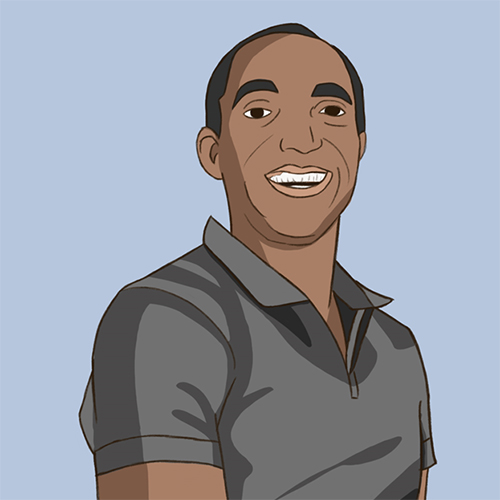INNOVATE
Tech Trailblazers : EKO.AI
It is not easy being an entrepreneur, and few are willing to take that first step plunging into the uncertainties of starting their own company. For many scientists, nothing is more satisfying than seeing their research go from bench to bedside. In this series, we speak with various start-up founders and explore their entrepreneurial journey with A*STAR’s commercialisation arm, A*ccelerate, and discover how, with dedication and a little bit of luck, they are able to turn their innovations into exciting businesses that impact lives.

James Hare, Founder eko.ai
EKO.AI
A medtech company that uses machine-learning to automate the fight against heart disease, eko.ai turns the reading and analysis of echocardiograms (the most common cardiac imaging modality), into a 2-minute process for clinicians. Their software platform offers a suite of research and productivity tools to help hospital systems seeking better outcomes for their patient populations.
James Hare, founder of eko.ai reveals the inspiration behind his business.
Why did you decide to start your company?
In 2017, I was happily retired, living the good life kitesurfing around the world. Then I received a troubling ECG reading that led me to getting my heart imaged. A doctor's first tool of choice to visualise the heart is an echo, something I had assumed was a fairly straightforward process. However, what I discovered was a long wait, to see expensive doctors, in expensive dark rooms, using software they hate, to manually produce a report, at the end of which I ended up getting two entirely different answers. Fortunately, the answer that said I was just fine ended up being correct. But this process taught me that the sector we rely on to protect us from the world's number one killer, cardiovascular disease, still has room for improvement.
What were some of the biggest challenges you faced when setting up your company?
There is nothing more important to the startup process than finding the right core team. Putting together the right group of individuals prepared to face daunting odds, constant chaos, and endless work to somehow come up with minor miracles each and every week is by far the biggest challenge.
How was A*STAR/ A*ccelerate involved in your entrepreneurial journey?
Tech startups are high risk endeavors. Founders must constantly seek ways to change those odds in their favor. One such approach is through mentoring and collaboration with partners that can help navigate key obstacles. A*ccelerate / A*STAR was there with us from day one helping us to build the team, define the mission, and make industry connections that frankly we would not have been able to do on our own. They leveraged expertise across the various research entities to develop the deeptech IP used in our software, and also ensured we had access to independant experts in the fields of cardiology, radiology, and medical devices to perform the due diligence and ensure the accuracy of our product. A*ccelerate also put in substantial effort in introducing the principals and partners of various reputed funds to us, which eventually led to their investments in eko.ai. We very much appreciate their support.
What are some of the milestones you are proudest of?
Closing our last financing round with Sequoia India, EDBI and SG Innovate was a major milestone for us. These prestigious institutions not only provided us with the capital to achieve our mission, but also offered an amazing source of external validation for the hard-fought progress we'd made.
What’s next for your company?
We are in the process of closing several significant agreements with some of the world's top pharmaceutical companies, to engage in ambitious research projects that, if successful, could dramatically expand the access people have to their heart health. Being able to move that needle even slightly is a goal I would be forever proud of.
-
Any interesting facts about your company?
I co-founded this company together with my spouse. Many people view that as an unenviable, high risk, potentially explosive combination, and they are not wrong. There is no question that it is one of the most challenging things I've ever done. But "surviving" the experience has also made me a far better husband and CEO, and for that I am very grateful.
Was the article helpful?
A*STAR celebrates International Women's Day

From groundbreaking discoveries to cutting-edge research, our researchers are empowering the next generation of female science, technology, engineering and mathematics (STEM) leaders.
Get inspired by our #WomeninSTEM
